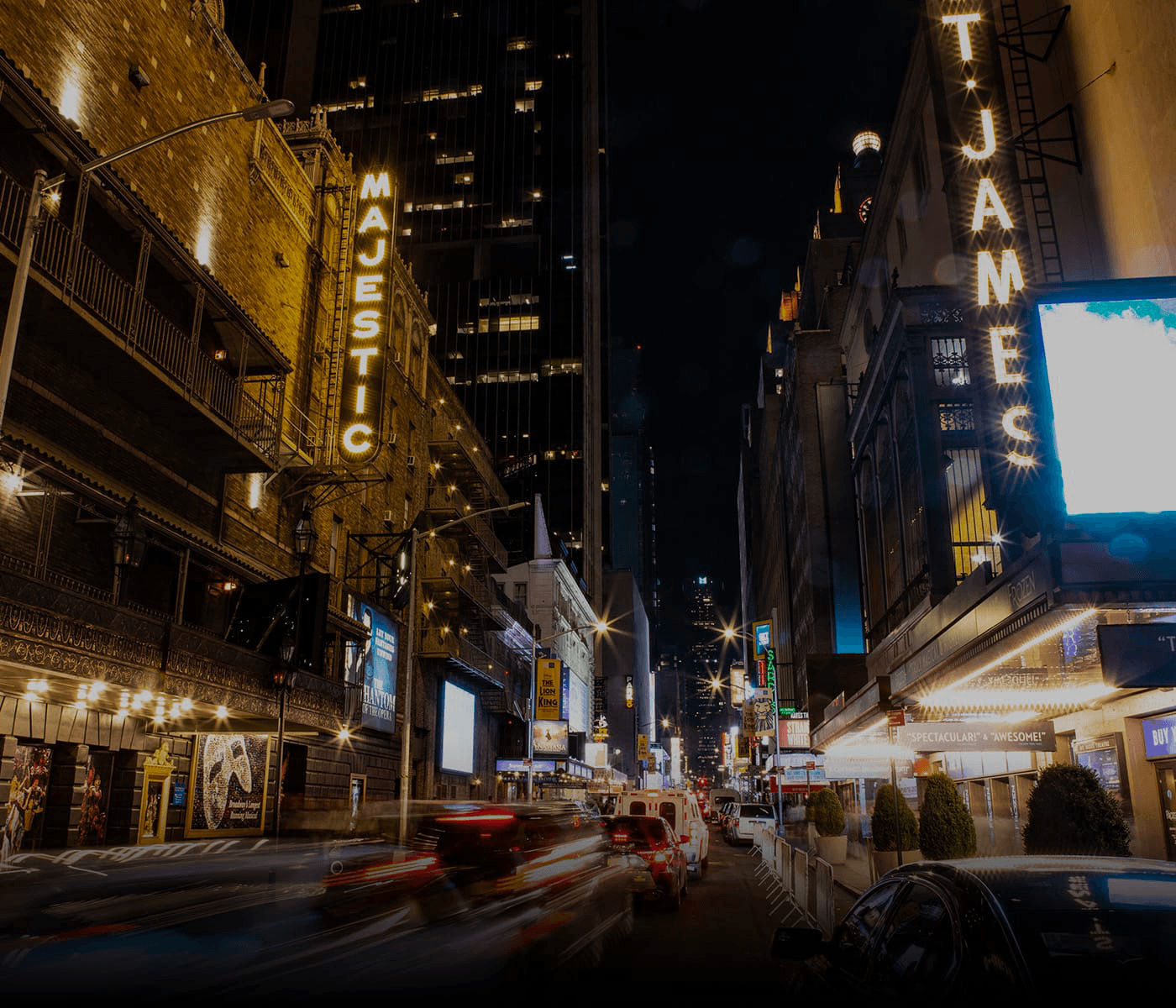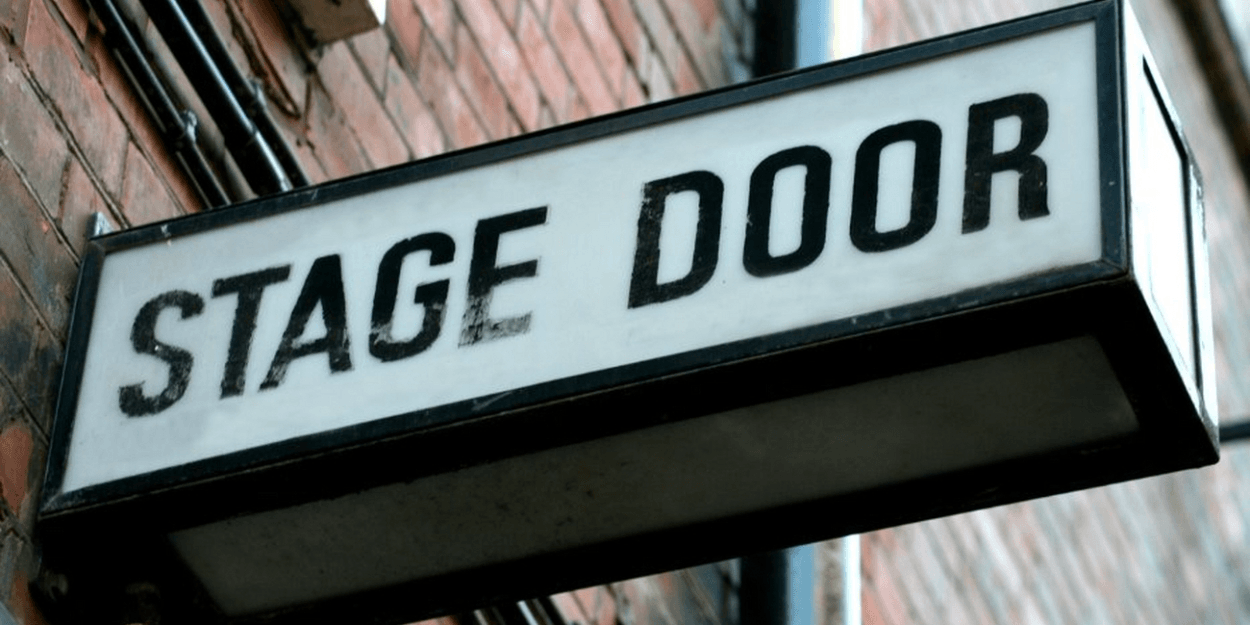Guía de bolsillo para vivir Broadway en Nueva York
Cosas esenciales que debes saber y qué esperar
Resumen
Si te encuentras en la bulliciosa ciudad de Nueva York, no puedes perderte la oportunidad de vivir la magia de Broadway. Con su rica historia, sus espectáculos cautivadores y su atmósfera única, Broadway es una visita obligada para quienes buscan una experiencia verdaderamente inolvidable.
¿Qué es Broadway?

Broadwayes un término que probablemente hayas escuchado antes, pero ¿qué es exactamente? Para ser exactos, Broadway es la abreviatura de Broadway Theatre District en la ciudad de Nueva York. El área geográfica del distrito es relativamente pequeña, y la mayoría de los teatros se encuentran en una cuadra entre la calle 42 y la calle 52 en el centro de Manhattan. Los teatros de Broadway tienen una capacidad mínima de 500 asientos, y los espectáculos de Broadway son simplemente, bueno, espectáculos que se han presentado en un teatro de Broadway. Consulta el sitio web oficial de Broadway para obtener más información.Lista de teatros de Broadwayy los shows que se están presentando actualmente.
Dato adicional: Historia de Broadway
Todo comenzó a mediados del siglo XVIII, cuando se inauguró en la calle Nassau el primer teatro de Nueva York, el acertadamente llamado "The Theatre". Este modesto lugar ofrecía una plataforma para que actores y dramaturgos exhibieran su talento y rápidamente se convirtió en un lugar de reunión popular para los entusiastas del entretenimiento. A medida que crecía la demanda de representaciones teatrales, también lo hacía la escena teatral en la ciudad de Nueva York.
Durante el siglo XIX, Broadway surgió como el epicentro del teatro estadounidense. El distrito se hizo famoso por sus melodramas, espectáculos de vodevil y comedias musicales, que cautivaban al público con su humor, drama e impresionantes actuaciones.
A principios del siglo XX, Broadway entró en lo que muchos consideran su "época dorada". Este período, que duró aproximadamente desde la década de 1940 hasta la de 1960, fue testigo del nacimiento de algunos de los musicales más legendarios de la historia, como "West Side Story", "The Sound of Music" y "My Fair Lady".
En las últimas décadas, Broadway ha vivido otro renacimiento que ha traído una nueva ola de creatividad e innovación a sus escenarios. Esta nueva era ha adoptado una amplia gama de historias y perspectivas, lo que ha hecho que Broadway sea más inclusivo y accesible que nunca. Espectáculos como "Hamilton", "Dear Evan Hansen" y "The Book of Mormon" han conquistado el mundo del teatro, traspasando fronteras y cautivando al público con su narrativa moderna y su música memorable.
Tipos de espectáculos de Broadway
Los espectáculos de Broadway son famosos por sus funciones abiertas, es decir, espectáculos que tienen una fecha de estreno pero no una fecha de presentación final. Esto significa que estas funciones abiertas pueden durar años desde su estreno. Uno de los espectáculos más populares, El fantasma de la ópera, estuvo en cartel durante 35 años y cerró recientemente; y otros espectáculos como El rey león llevan más de 25 años en cartel.
Sin embargo, hay algunos espectáculos (principalmente obras de teatro) que tienen una duración limitada; estos espectáculos tienen una fecha de presentación final que se establece con la fecha de su primera presentación.
¿Cuándo ver Broadway?
Cada espectáculo tiene su propio calendario de funciones, pero normalmente hay 8 funciones por semana durante su duración. La mayoría de las funciones se realizan por la noche, pero algunas también tienen funciones por la tarde los miércoles o los fines de semana. Normalmente, las funciones no se realizan los lunes, pero no es una regla estricta.
Los mejores espectáculos de Broadway para ver
Broadway es el hogar de algunos de los espectáculos más emblemáticos e inolvidables del mundo. Desde clásicos de larga data hasta éxitos contemporáneos y joyas ocultas, hay algo para todos en este gran escenario.

Cuando se trata de Broadway, hay ciertos espectáculos que han resistido la prueba del tiempo. Clásicos como "El rey león", "Malvado", y "Hamilton"Han cautivado al público durante años y siguen atrayendo multitudes noche tras noche. Estos espectáculos se han convertido en íconos culturales, combinando historias fascinantes, actuaciones impresionantes y música inolvidable.

Si buscas algo más actual, Broadway tiene muchos éxitos contemporáneos para ofrecer. Algunos de los espectáculos más populares incluyen “Harry Potter y el legado maldito”, “M.J.", y "Aladino".
Por supuesto, Broadway no se limita a las producciones de renombre. También hay joyas ocultas que esperan ser descubiertas. Algunos espectáculos menos conocidos ofrecen experiencias únicas y poco convencionales que pueden ser igualmente cautivadoras. Arriésgate con algo nuevo y explora la vibrante escena off-Broadway, donde puedes encontrar un tesoro teatral oculto. Estos espectáculos pueden no tener el mismo nivel de fama que sus homólogos, pero poseen un encanto y una intimidad que pueden ser verdaderamente especiales. Desde dramas que invitan a la reflexión hasta comedias extravagantes, estas joyas ocultas ofrecen una alternativa refrescante a la corriente principal.
Controlar Sitio oficial de Broadwaypara obtener la lista de espectáculos que se están representando actualmente en la ciudad de Nueva York, incluida información sobre el teatro en el que se presenta.
Mirando un espectáculo de Broadway
Código de vestimenta para los espectáculos de Broadway
Una de las preguntas más frecuentes sobre la etiqueta en Broadway es qué ropa llevar. Si bien no hay un código de vestimenta estricto, siempre es una buena idea vestirse de manera prolija y de una manera que muestre respeto por los artistas y el lugar. La vestimenta informal elegante es una apuesta segura, pero si quieres ir a lo grande, no tengas miedo de vestirte elegante y canalizar la estrella de Broadway que llevas dentro.
Alimentos y bebidas
No podrá llevar su propia comida y bebida al teatro. Sin embargo, casi todos los teatros de Broadway venden algunos bocadillos ligeros o dulces y una selección de bebidas alcohólicas y no alcohólicas. Puede llevar las bebidas y los bocadillos que haya comprado a su asiento y disfrutarlos desde la comodidad de su asiento. Planifique llegar temprano para tener tiempo suficiente para recoger su comida y bebida antes del espectáculo.
Intermedios
Algunos espectáculos, generalmente los más largos, pueden tener intermedios. La duración de los intermedios varía de un espectáculo a otro, y puedes aprovechar el intermedio para relajarte e ir al baño. Ten en cuenta que las colas para los baños pueden ser bastante largas, pero si todavía estás esperando cuando el intermedio está a punto de terminar, los acomodadores suelen ser bastante serviciales, así que no te estreses demasiado por eso.
Conociendo al elenco (Stage Doors)
Cuando cae el telón, muchos entusiastas del teatro disfrutan de la oportunidad de conocer a los miembros del elenco fuera de la puerta del escenario. No todos los espectáculos tienen esta sesión de encuentro y, en los espectáculos que sí la tienen, no todos los artistas participarán en ella. Si se dirige a las puertas del escenario, asegúrese de comprobar primero dónde están (varía de un teatro a otro). Cada teatro también tiene sus propias reglas, así que asegúrese de respetarlas.

Es importante abordar la experiencia con respeto y consideración. Sea paciente y permita que los actores tengan su tiempo y espacio personal. No los presione ni los amontone, y recuerde que los artistas pueden estar cansados después de una larga actuación. Una palabra amable de agradecimiento o una solicitud de autógrafo serán suficientes para demostrar su admiración por su increíble trabajo.
Consejos para conseguir entradas para Broadway
Seleccionar un asiento
Después de responder laQué ver y Cuándo mirarLa pregunta que probablemente tendrás esDónde mirarUna vez que hayas identificado el teatro en el que se realizará la función que deseas, tendrás que decidir qué entradas comprar. Si bien la disposición de cada teatro varía, por lo general tienen las siguientes secciones:
Orquesta
La zona de orquesta se encuentra en la planta baja, y son los asientos más cercanos al escenario. Son las zonas más accesibles ya que esta zona no suele tener escaleras ni ascensores.
Entresuelo
Los asientos del entrepiso son el segundo nivel de asientos y también se conocen comúnmente como asientos circulares. Desde el entrepiso, obtendrás una vista más amplia del escenario.
Los Balcones
Los palcos, ubicados en los niveles más altos del teatro, son los más alejados del escenario. Si bien no podrás ver a los artistas de cerca, tendrás una perspectiva panorámica para apreciar la coreografía y la coordinación de los artistas desde un ángulo diferente. Las entradas para los palcos también suelen ser las más baratas.
Los mejores momentos para comprar entradas
A la hora de comprar entradas para Broadway, tienes dos opciones principales: comprarlas online o visitar la taquilla en persona. Si las compras online, puedes conseguirlas en el sitio web del teatro o en fuentes oficiales de venta de entradas, o en agencias de venta de entradas de terceros comoHoyTix o broadway.com.
Para aumentar las posibilidades de conseguir entradas, se recomienda reservarlas con antelación o considerar asistir a una función entre semana, ya que las funciones de fin de semana suelen agotarse más rápido. Además, fuera de temporada, es posible que encuentres precios más bajos y más disponibilidad.
Cómo conseguir entradas con descuento
Si buscas ahorrar algo de dinero y, al mismo tiempo, vivir la magia de Broadway, existen formas de encontrar entradas con descuento. Busca ofertas de último minuto para espectáculos del mismo día en algunas de las agencias de venta de entradas como TodayTix.
O también puedes probar suerte con un billete de lotería en sitios comoAsiento de la suerte o BroadwayDirectLos boletos de lotería son aquellos en los que participas en una lotería y tienes la oportunidad de comprar los boletos a un precio más bajo; las loterías suelen ser para espectáculos del mismo día y puedes participar en ellas en la taquilla o en línea, según el espectáculo. Participar en la lotería es gratuito y solo tendrás que pagar el boleto después de haber ganado, pero ten en cuenta que con los boletos de lotería no podrás elegir tus propios asientos y, a veces, pueden incluir vistas obstruidas.